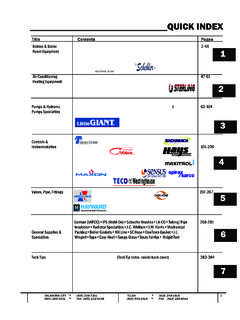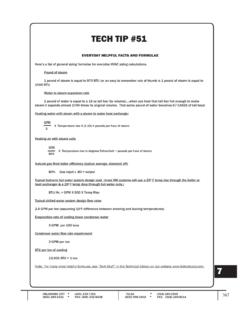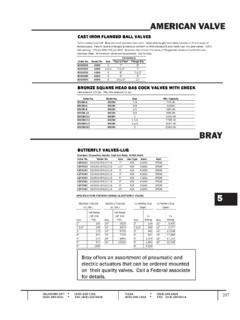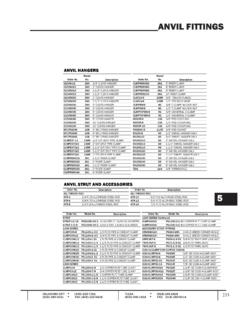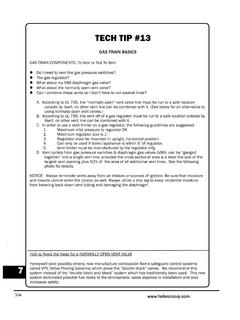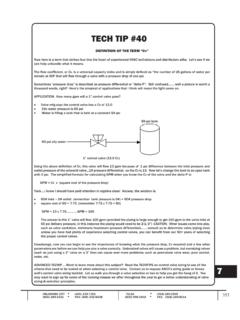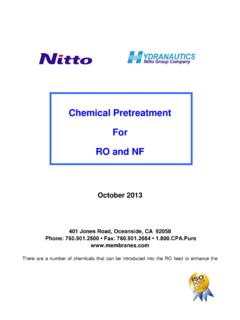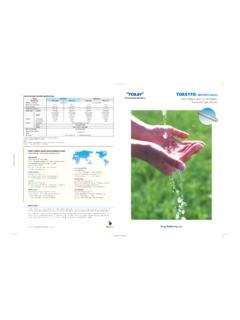Transcription of Complete Boiler System - Federal Corporation
1 A Total Boiler System Reprinted with permission from Nalco Chemicals The purpose of a Boiler is to produce steam for heating, for plant processes, and for driving turbines that produce electricity. While Boiler systems vary in shape and size, they typically consist of the Boiler and its support systems: Pretreatment, Condensate, and Feedwater. Strict care and control will keep Boiler systems operating at peak performance. Common problems to avoid are Impurities, Carryover, Corrosion, and Deposits. Find out more about Nalco total System approach to Boiler treatment programs. Internal Boiler Treatment Billions of pounds of steam are generated each day worldwide using Boiler treatment programs.
2 Proper water treatment can provide a measurable return on your investment with savings in fuel, water, chemicals and repairs. Proper Boiler treatment reduces utility costs extends the life of boilers improves Boiler efficiency cuts downtime lowers maintenance costs Nalco addresses water conditions related to hardness, oxygen, silica, iron and more. In low pressure boilers internal treatment may be the only treatment necessary because much of the condensate is returned and the raw water is of good quality. Moderate and high pressure boilers require both external pretreatment and internal treatment. Deposit control is critical in preventing costly Boiler tube failures or wasted fuel.
3 1. Benefits of Nalco programs such as TRANSPORT PLUS include: Boiler cleanliness for optimized heat transfer, lower fuel bills, and fewer tube failures lower corrosivity for increased Boiler reliability and fewer unplanned shutdowns due to corrosion superior passivation to further protect feedwater and Boiler surfaces from corrosion and unnecessary repair costs low solids contribution which allows higher cycles and results in less water, Btu's and chemical blown down the drain ease in feeding and control to help assure optimum results To further optimize your System , learn more about Nalco s treatment feed, monitoring and control.
4 When is internal treatment of Boiler feedwater necessary? chemical treatment of water inside the Boiler is essential whether or not the water has been pretreated. Internal treatment, therefore, compliments external treatment by taking care of any impurities entering the Boiler with the feedwater (hardness, oxygen, silica, iron regardless of whether the quantity is large or small. In some cases external treatment of the water supply is not necessary and the water can be treated by internal methods alone. Internal treatment can constitute the sole treatment when boilers operate at low pressure, much of the condensate is returned and the raw water is of good quality.)
5 However, in moderate and high pressure boilers, external pretreatment of the make-up water is mandatory for good results. With today's higher heat transfer rates, even a small deposit can cause tube failures or wasted fuel. What should a good internal water treatment program accomplish? The purposes of an internal treatment program include: to react with incoming feedwater hardness and prevent it from precipitating on the Boiler metal as scale to condition any suspended matter such as hardness sludge in the Boiler and make it nonadherent to the Boiler metal to control the causes of Boiler water carryover to eliminate oxygen from the feedwater to provide enough alkalinity to prevent Boiler corrosion In addition, a Complete treatment program should prevent corrosion and scaling of the feedwater System and protect against corrosion in the steam-condensate systems.
6 2. What chemicals are used in internal treatment? Today's modern powerhouse uses a wide variety of internal treatment chemicals. Phosphates had been the main scale conditioning chemical until development of chelate and polymer type chemicals. Chelant programs offer superior cleanliness over phosphate programs, however, one weakness is the potential for corrosion if overfed. Polymer treatment, Nalco Transport Plus, offers cleanliness similar to chelates with less potential for Boiler corrosion. All internal treatment, whether phosphate, chelant or polymer, condition the calcium and magnesium in the feedwater. Chelates and polymers form soluble complexes with the hardness, whereas phosphates precipitate the hardness.
7 Sludge conditioners (natural organic materials and synthetic polymers) aid in the conditioning of precipitated hardness. These materials must be effective and stable at Boiler operating pressures. Certain synthetic organic materials are antifoam agents. For feedwater oxygen scavenging, the chemicals used are sodium sulfite, Nalco SUR- GARD or ELIMIN-OX . Volatile neutralizing amines or filming inhibitors protect condensate systems. How are internal treatment chemicals fed? Common feed methods include the use of chemical solution tanks and proportioning pumps. In general, Boiler treatment chemicals (polymers, phosphates, chelate, caustic).
8 Are added directly to the feedwater at a point after deaeration but before the entrance to the Boiler drum. Certain phosphates (ortho-type) should be fed into the steam drum of the Boiler . The chemicals should discharge in the feedwater section of the Boiler System so that reactions occur in the water before it enters the steam generating areas. Chemicals added to react with dissolved oxygen (sulfite, SUR-GARD , ELIMIN-OX ). should be fed continuously into the deaerator neck or below the waterline in the deaerator storage section. Similarly, chemicals used to prevent scale and corrosion in the feedwater System (caustic, organics) should be fed continuously.
9 Chemicals used to prevent condensate System corrosion may be fed directly to the steam, feedwater or Boiler , depending on the chemical used. Continuous feeding is always preferred, but intermittent application may suffice in some cases. How are chemical dosages controlled? An operator can make manual adjustments based upon routine test results, however, automatic chemical control is preferable. Nalco automated control systems provide a reliable method for controlling the chemical treatment program. Automation takes many forms: chemical addition may be proportioned to feed flow specific ion sensors, interfaced with a computer, can identify the proper treatment change and make adjustments a tracer can be used to maintain a product level at a set point or it can be interfaced with a computer to respond to a dynamic parameter 3.
10 Proper proportioning and feeding of chemicals is needed to ensure the recommended amount of treatment is maintained continuously. Automated control systems, such as Nalco TRASAR Technology, are becoming more prevalent. Conductivity-based systems for blowing down Boiler water to reduce the level of suspended solids and dissolved solids are also used. Pretreatment The pretreatment System prepares the raw water (or make-up water) before it goes to the Boiler . It could involve several pretreatment steps, all acting to reduce the dissolved and suspended solids from the water. chemical treatment helps you avoid unwanted impurities.
